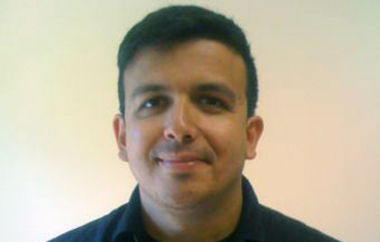PhD in Biological Systems Engineering
Current position: Environmental Engineer at the Department of Environmental Protection, Maine, United States of America
Research focus: stormwater management, green infrastructure, erosion sedimentation
The Science Forum 2009 helped him to re-assess his professional activities, which allowed him to make tangible contributions to the overarching goal of sustainability.
From 2009 to 2014, he worked as an Assistant Professor at the Abant İzzet Baysal University, Turkey where he led a project addressing the phosphorus dynamics of the shallow and eutrophic Yenicaga Lake in Turkey.
2015 Member of the American Society of Civil Engineers (ASCE)
2015 Member of the Water Environment Federation (WEF)
2009 Honorary Research Fellow from UW-Madison Biological Systems Engineering Department
CV as submitted for the Green Talents award (2009):
Abant Izzet Baysal University, Turkey / University of Wisconsin-Madison, United States of America
Research focus: biological systems engineering
Kerem Güngör is an assistant professor at Abant Izzet Baysal University in Bolu in northwestern Turkey and currently also an honorary fellow at the University of Wisconsin-Madison in the United States. Güngör's research focuses on environmental technologies to prevent phosphorus pollution from animal manure. He is planning to develop waste treatment technologies that use anaerobic digestion, phosphorus recovery, and fermentation in particular. These processes provide biogas, phosphorus minerals, and organic ingredients for biodegradable plastic production, all of them useful resources. Biogas could help decrease dependence on fossil fuels and phosphorus minerals could help replace phosphate rock and phosphoric acid needed for fertilizer production.
Controlled fermentation of organic waste can produce simpler organics, which can be used to produce biodegradable polymers. These polymers can replace comparable petrochemical products, making plastic manufacturing more environmentally sustainable. In the context of the Green Talents Forum, Kerem Güngör is looking for research partners for joint German-Turkish research projects. The Turkish scientist impressed the jury with his many years of scientific experience in his field of research, which he gained during long research stints in the United States, among other countries.






